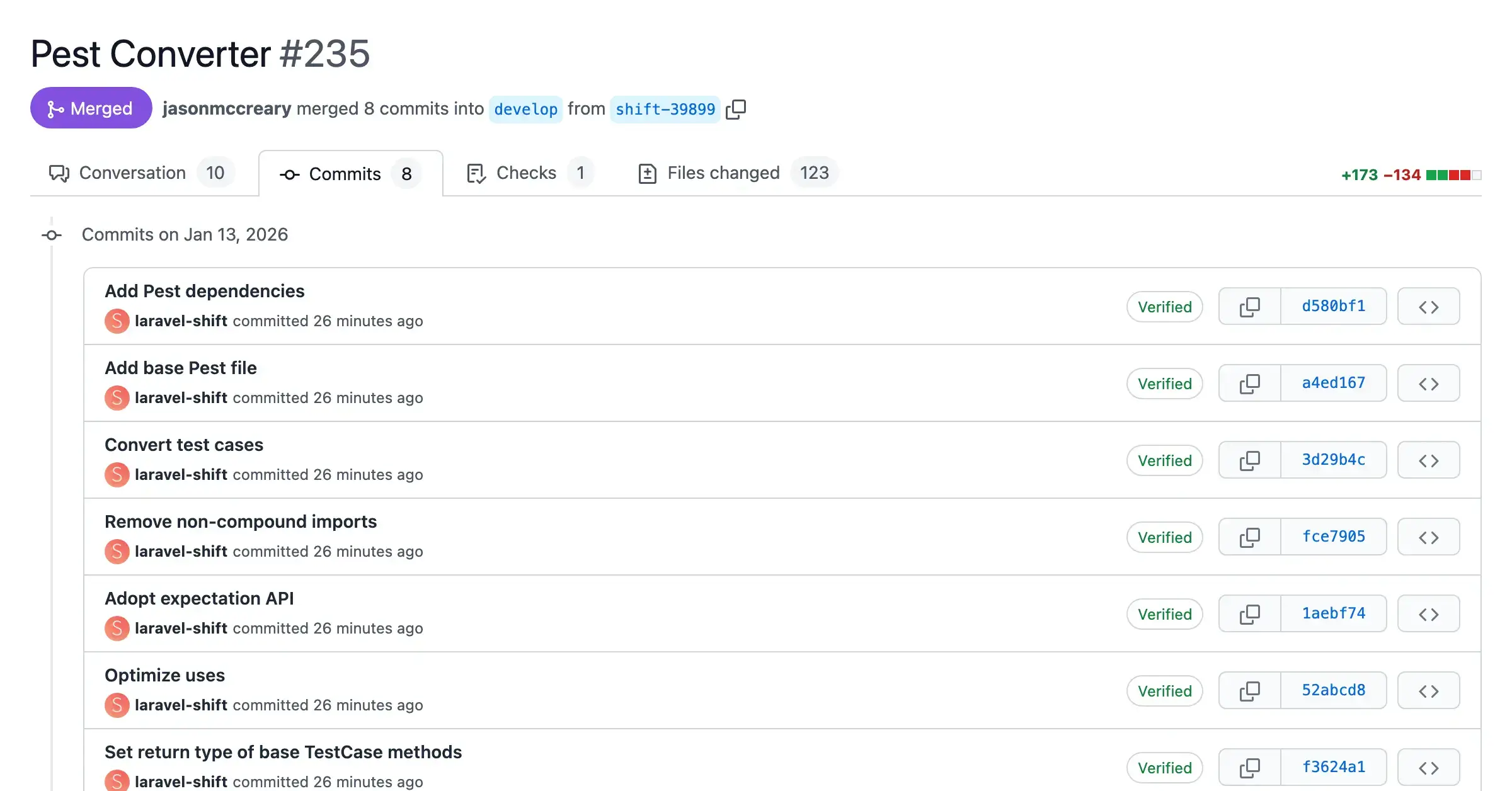Pest Converter
The Pest Converter automates the process of converting your test suite from using the PHPUnit testing framework to use the Pest testing framework.
Pest offers a modern, expressive testing API allowing you to have a little more fun when writing tests.
After running the Pest Converter all of your PHPUnit test classes will be converted to Pest tests, giving you a single, unified test suite running Pest.
Using the Pest Converter to automatically convert your test suite has an estimated time savings of 3 hours.

Watch a demo
Requirements
- A
phpunit/phpunitdependency of 9.0 or higher (orpestphp/pest) - PHPUnit test classes under a
tests/folder - Running PHP 8.1 or higher
Automated Conversions
The Pest Converter automates the following conversions:
- Installs the latest version of Pest (2.2).
- Adds dependencies for additional Pest plugins like
pestphp/pest-plugin-laravel. - Creates a default
tests/Pest.phpfile. - Converts PHPUnit lifecycle methods to Pest
beforeAll,beforeEach,afterEach,afterAll. - Converts test cases intelligently renaming the test description and choosing the
testoritAPI. - Converts any data provider to a Pest
dataset. - Maintains test groups by chaining Pest
group(). - Adopts fluent Pest expectations over PHPUnit assertions when available.
- Updates your build pipeline to use the
vendor/bin/pestrunner instead ofvendor/bin/phpunit.
Manual Conversions
PHPUnit allowed metaprogramming through DocBlock annotations and PHP attributes. While some of the common ones are supported by Pest and converted by the Pest Converter, many are not. If you are relying heavily on these in PHPUnit, you may rework these beforehand or preserve them as PHPUnit tests. Although the goal of the Pest Converter is to allow you to use Pest exclusively, you may still run PHPUnit and Pest tests together.
